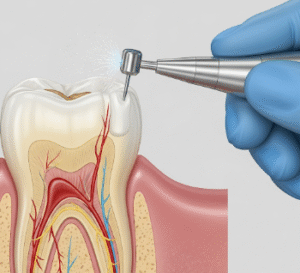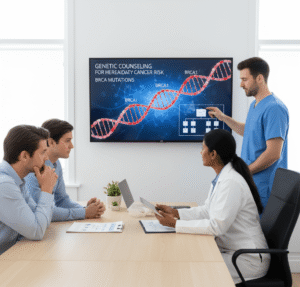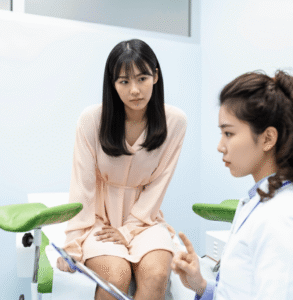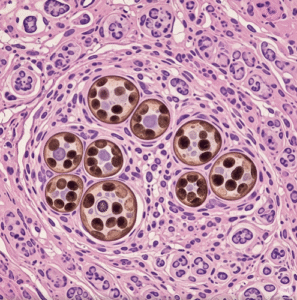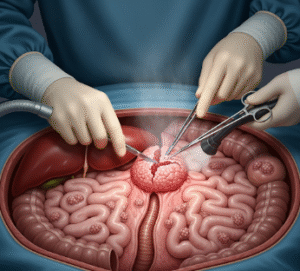Overview
Williams Syndrome is a rare genetic disorder characterized by distinctive facial features, cardiovascular disease (especially supravalvular aortic stenosis), developmental delays, and an unusually friendly and social personality. It affects both physical and cognitive development and is present from birth. Early diagnosis and multidisciplinary care can greatly improve the quality of life for individuals with this condition.
What is Williams Syndrome?
Williams Syndrome is a neurodevelopmental disorder caused by a deletion of about 26–28 genes on chromosome 7q11.23, including the ELN gene responsible for producing elastin, a protein essential for blood vessel elasticity. This condition affects many body systems and leads to a unique combination of medical problems, including heart defects, intellectual disability, and overly social behavior. It is not inherited from parents in most cases, but results from a spontaneous deletion during conception.
Symptoms
Symptoms of Williams Syndrome can vary but often include a combination of physical, cognitive, and behavioral traits:
Physical and medical features:
- Distinctive facial appearance (broad forehead, short nose, full cheeks, wide mouth)
- Supravalvular aortic stenosis (SVAS) or other cardiovascular defects
- Low muscle tone and poor coordination
- Dental abnormalities (small, widely spaced teeth)
- Gastrointestinal issues
- Hypercalcemia (elevated blood calcium in infancy)
- Short stature
- Hearing sensitivity (hyperacusis)
Cognitive and behavioral traits:
- Mild to moderate intellectual disability
- Strength in verbal skills but weakness in spatial reasoning
- Extremely friendly and talkative personality
- High levels of empathy and sociability
- Attention deficit and anxiety disorders
Causes
Williams Syndrome is caused by a microdeletion of genetic material on chromosome 7, specifically at 7q11.23, which includes the elastin (ELN) gene. The deletion occurs spontaneously during the formation of reproductive cells and is not typically inherited. The absence of the elastin gene is responsible for many of the cardiovascular and connective tissue problems seen in the disorder.
Risk Factors
Because Williams Syndrome usually results from a spontaneous genetic mutation, there are no known environmental or lifestyle risk factors. However:
- Having a parent with Williams Syndrome (rare) increases risk in offspring
- Occurs in approximately 1 in 7,500 to 10,000 live births, affecting both genders equally
- Can happen in any ethnic group or geographic region
Complications
Individuals with Williams Syndrome may face several complications throughout life, such as:
- Heart problems, including narrowing of arteries (SVAS, pulmonary stenosis)
- Kidney abnormalities or urinary tract issues
- Feeding difficulties and failure to thrive in infancy
- Learning difficulties and delayed motor skills
- Orthopedic issues, such as scoliosis or joint limitations
- Hearing loss
- Anxiety disorders and phobias
- Increased risk of vascular problems in adulthood
Prevention
Williams Syndrome cannot be prevented, as it is caused by a random genetic mutation. However:
- Prenatal genetic testing through chorionic villus sampling or amniocentesis may detect the condition in at-risk pregnancies
- Genetic counseling is recommended for families with a history of genetic disorders
- Early diagnosis and intervention can prevent or manage complications and improve long-term outcomes
Treatment Options in Korea
South Korea offers advanced, multidisciplinary treatment for individuals with Williams Syndrome through top-tier pediatric and genetic care facilities. Treatment focuses on managing symptoms and improving development, and may include:
- Pediatric cardiology for monitoring and treating heart defects
- Speech and language therapy for communication development
- Occupational and physical therapy to improve motor skills
- Nutritional support for feeding issues and weight management
- Special education programs to support cognitive learning
- Behavioral therapy and anxiety management
- Regular audiological evaluations and hearing support
- Genetic testing and counseling for families
Major hospitals like Seoul National University Hospital, Samsung Medical Center, and Asan Medical Center provide comprehensive, personalized care through coordinated specialty clinics.


